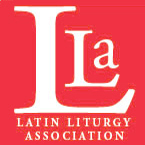|
What earlier generations held as sacred remains sacred and great for us too,
|
Vatican Council II approved Sacrosanctum Concilium on 12/4/1963 - the only Council document on the liturgy - which said: |
|
Article 36. (a “norm”)
The use of the Latin language, with due respect to particular law, is to be preserved in the Latin rites.
But since the use of the vernacular, whether in the Mass, the administration of the sacraments, or in other parts of the liturgy,
may frequently be of great advantage to the people, a wider use may be made of it,
especially in readings, directives and in some prayers and chants.
|
|
Article 54. (a “decree”)
A suitable place may be allotted to the vernacular in Masses which are celebrated with the people, especially in the readings and “the common prayer,”
[those ending with the response "Lord, hear our prayer"]
and also, as local conditions may warrant, in those parts which pertain to the people, according to the rules laid down in Article 36 of this Constitution.
Nevertheless care must be taken to ensure that the faithful may also be able to say or sing together in Latin those parts of the Ordinary of the Mass which pertain to them.
|
Article 116. (a “decree”)
The Church recognizes Gregorian chant as being specially suited to the Roman liturgy. Therefore, other things being equal,
it should be given pride of place in liturgical services.
Two Model Responses to Traditionis Custodes: |
|
Decree by Most Reverend Kenneth Richards, Archbishop of Kingston, Jamaica
|
|
Decree by Right Reverend Thomas Paprocki, Bishop of Springfield, Illinois |


|
Contact Us |